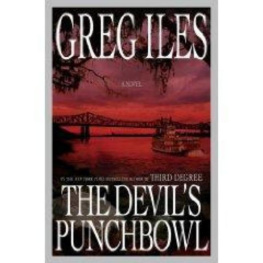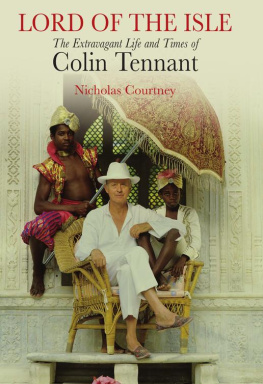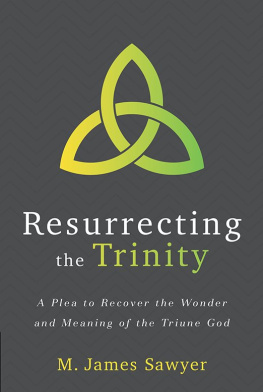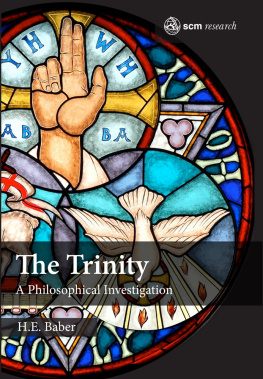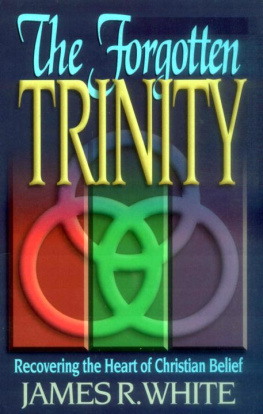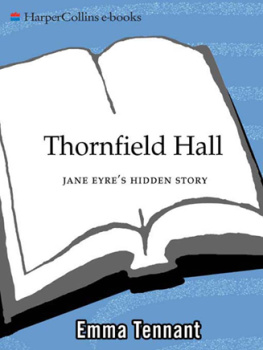
Greg Iles
The Footprints of God
"My name is David Tennant, M.D. I'm a professor of ethics at the University of Virginia Medical School, and if you're watching this tape, I'm dead."
I took a breath and gathered myself. I didn't want to rant. I'd mounted my Sony camcorder on a tripod and rotated the LCD screen in order to see myself as I spoke. I'd lost weight over the past weeks. My eyes were red with fatigue, the orbits shiny and dark. I looked more like a hunted criminal than a grieving friend.
"I don't really know where to begin. I keep seeing Andrew lying on the floor. And I know they killed him. But I'm getting ahead of myself. You need facts. I was born in 1961 in Los Alamos, New Mexico. My father was James Howard Tennant, the nuclear physicist. My mother was Ann Tennant, a pediatrician. I'm making this tape in a sober state of mind, and I'm going to deposit it with my attorney as soon as I finish, on the understanding that it should be opened if I die for any reason.
"Six hours ago, my colleague Dr. Andrew Fielding was found dead beside his desk, the victim of an apparent stroke. I can't prove it, but I know Fielding was murdered. For the past two years, he and I have been part of a scientific team funded by the National Security Agency and DARPA-the government agency that created the Internet in the 1970s. Under the highest security classification, that team and its work are known as Project Trinity."
I glanced down at the short-barreled Smith amp; Wesson.38 in my lap. I'd made sure the pistol wasn't visible on camera, but it calmed me to have it within reach. Reassured, I again stared at the glowing red light.
"Two years ago, Peter Godin, founder of the Godin Supercomputing Corporation, had an epiphany much like that mythical moment when an apple dropped onto Isaac Newton's head. It happened in a dream. Seemingly from nowhere, a seventy-year-old man visualized the most revolutionary possibility in the history of science. When he woke up, Godin telephoned John Skow, a deputy director of the NSA, in Fort Meade, Maryland. By six A.M., the two men had drafted and delivered a letter to the president of the United States. That letter shook the White House to its foundations. I know this because the president was my brother's close friend in college. My brother died three years ago, but because of him, the president knew of my work, which is what put me in the middle of all that followed."
I rubbed the cool metal of the.38, wondering what to tell and what to leave out. Leave out nothing, said a voice in my head. My father's voice. Fifty years ago, he'd played his own part in America 's secret history, and that burden had greatly shortened his days. My father died in 1988, a haunted man, certain that the Cold War he'd spent his youthful energy to perpetuate would end with the destruction of civilization, as it so easily could have. Leave out nothing
"The Godin Memo," I continued, "had the same effect as the letter Albert Einstein sent President Roosevelt at the beginning of World War Two, outlining the potential for an atomic bomb and the possibility that Nazi Germany might develop one. Einstein's letter spurred the Manhattan Project, the secret quest to ensure that America would be the first to possess nuclear weapons. Peter Godin's letter resulted in a project of similar scope but infinitely greater ambition. Project Trinity began behind the walls of an NSA front corporation in the Research Triangle Park of North Carolina. Only six people on the planet ever had full knowledge of Trinity. Now that Andrew Fielding is dead, only five remain. I'm one. The other four are Peter Godin, John Skow, Ravi Nara-"
I bolted to my feet with the.38 in my hand. Someone was rapping on my front door. Through thin curtains, I saw a Federal Express truck parked at the foot of my sidewalk. What I couldn't see was the space immediately in front of my door.
"Who is it?" I called.
"FedEx," barked a muffled male voice. "I need a signature."
I wasn't expecting a delivery. "Is it a letter or a package?"
"Letter."
"Who from?"
"Uhh Lewis Carroll."
I shivered. A package from a dead man? Only one person would send me a package under the name of the author of Alice in Wonderland. Andrew Fielding. Had he sent me something the day before he died? Fielding had been obsessively searching the Trinity labs for weeks now, the computers as well as the physical space. Perhaps he'd found something. And perhaps whatever it was had got him killed. I'd sensed something strange about Fielding's behavior yesterday-not so easy with a man famed for his eccentricities-but by this morning he'd seemed to be his old self.
"Do you want this thing or not?" asked the delivery-man.
I cocked the pistol and edged over to the door. I'd fastened the chain latch when I'd got home. With my left hand, I unlocked the door and pulled it open to the length of the chain. Through the crack, I saw the face of a uniformed man in his twenties, his hair bound into a short ponytail.
"Pass your pad through with the package. I'll sign and give it back to you."
"It's a digital pad. I can't give you that."
"Keep your hand on it, then."
"Paranoid," he muttered, but he stuck a thick orange pad through the crack in the door.
I grabbed the stylus hanging from the string and scrawled my name on the touch-sensitive screen. "Okay."
The pad disappeared, and a FedEx envelope was thrust through. I took it and tossed it onto the sofa, then shut the door and waited until I heard the truck rumble away from the curb.
I picked up the envelope and glanced at the label. "Lewis Carroll" had been signed in Fielding's spidery hand. As I pulled the sheet of paper from the envelope, a greasy white granular substance spilled over my fingers. The instant my eyes registered the color, some part of my brain whispered anthrax. The odds of that were low, but my best friend had just died under suspicious circumstances. A certain amount of paranoia was justified.
I hurried to the kitchen and scrubbed my hands with dish soap and water. Then I pulled a black medical bag from my closet. Inside was the usual pharmacopoeia of the M.D.'s home: analgesics, antibiotics, emetics, steroid cream. I found what I wanted in a snap compartment: a blister pack of Cipro, a powerful broad-spectrum antibiotic. I swallowed one pill with water from the tap, then took a pair of surgical gloves from the bag. As a last precaution, I tied a dirty T-shirt from the hamper around my nose and mouth. Then I folded the FedEx envelope and letter into separate Ziploc bags, sealed them, and laid them on the counter.
As badly as I wanted to read the letter, part of me resisted. Fielding might have been murdered for what was written on that page. Even if that weren't the case, nothing good would come from my reading it.
I carefully vacuumed the white granules from the carpet in the front room, wondering if I could be wrong about Fielding's death being murder. He and I had worked ourselves into quite a state of suspicion over the past weeks, but then we had reason to. And the timing was too damn convenient. Instead of putting the vacuum cleaner back into the closet, I walked to the back door and tossed the machine far into the yard. I could always buy another one.
I was still eerily aware of the letter sitting on the kitchen counter. I felt like a soldier's wife refusing to open a telegram. But I already knew my friend was dead. So what did I fear?
The why, answered a voice in my head. Fielding talking. You want to keep your head in the sand. It's the American national pastime
More than a little irritated to find that the dead could he as bothersome as the living, I picked up the Ziploc containing the letter and carried it to the front room. The note was brief and handwritten.
Next page

